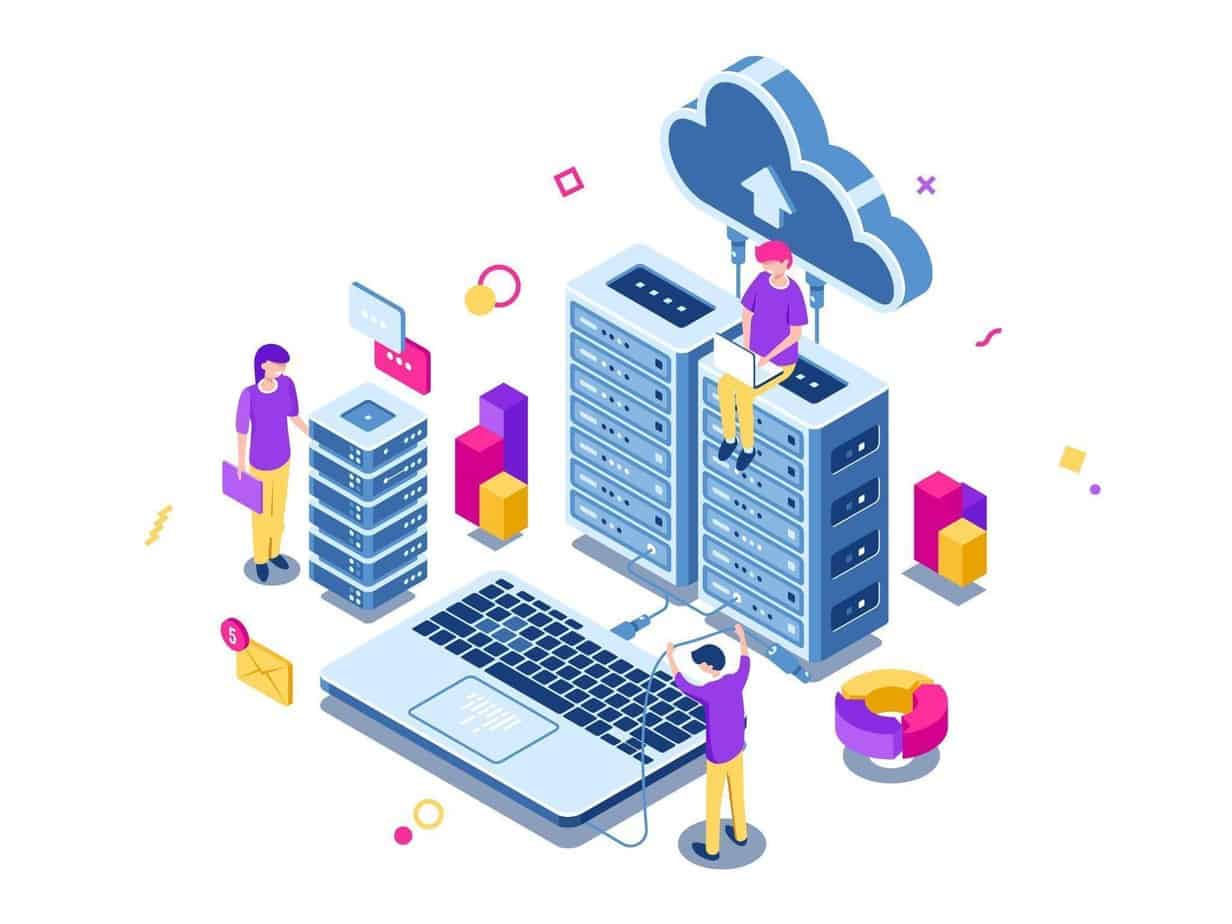
In today’s fast-paced business world, it’s more important than ever for growing businesses to be agile, flexible, and efficient. A reliable and modern enterprise resource planning (ERP) solution is critical for businesses looking to streamline their operations, improve their productivity, and stay ahead of the competition.
The cloud-based ERP systems are increasingly becoming the go-to solution for businesses of all sizes.
One of the most reliable and preferred choices for business is Microsoft Cloud ERP and many businesses are choosing it. In this blog post, we will explore the top seven reasons why your growing business needs a cloud ERP solution.
Yes, whether you choose Microsoft ERP or any other, your business will definitely benefit from the below-mentioned reasons.
Read on to discover why a cloud ERP solution is the right choice for your growing business
1. Affordable: Requires Less Initial Capital
If we see older-generation on-premises ERP systems, it has a history of exceeding budgets and causing operational difficulties. However, the newer generation of cloud-based ERP systems has learned from these mistakes and so offers the Software-as-a-Service (SaaS) model to avoid common financial challenges.
The current approach has several financial benefits because it transforms ERP systems from a capital expense to an ongoing operating expense, eliminating the need for large upfront capital investments.
Companies using SaaS ERP systems can significantly reduce costs related to hardware and infrastructure investments, labour costs associated with installing hardware and systems, and training expenses.
As a result, the total upfront investment required to implement a cloud ERP system is often much lower than the cost of an on-premises system. This reduced initial cost can be beneficial for small businesses that need to expand quickly but lack the capital to invest in their own server rooms and hardware infrastructure. Even if the costs of SaaS ERP and on-premises ERP eventually coincide at some point, the benefits of the on-premise ERP cloud solution make it a better investment.
2. Deployment: Streamline Implementation Strategies
ERP disasters usually happen during the implementation stage due to challenges in coordinating and planning the rollout across different systems and departments. The implementation of an on-premises ERP deployment is usually a lengthy and difficult process, causing each department to struggle with its own issues while the IT department tries to keep up.
This results in cost increases, production stoppages or slowdowns due to implementation difficulties, and a pause in innovation. Cloud ERP software is designed to tackle these problems directly, by creating solutions that are more responsive, adaptable, and easier to implement.
On-premises deployments may take up to 12 months, while a typical cloud ERP deployment takes only three to six months. Small firms who lack the time or resources for an effective on-premises ERP solution can particularly benefit from this. It is important to note that even with the right resources, software that is not user-friendly cannot be your saviour.
3. Security: Most Secure and Reliable for Corporate Data
Cloud-based applications are often perceived as lacking in stability and security, making security a top concern for businesses. This perception, however, is becoming inaccurate. The leading cloud ERP systems now offer a suite of security tools comparable to that of any on-premises system, and some even provide additional advantages that on-premises systems lack. These advantages include simultaneous, automatic, system-wide updates that fix security flaws without users having to take additional steps like backups.
While some companies continue to use on-premises legacy ERP systems, these systems will become less and less relevant as time goes on. However, it should be noted that cloud systems place more security responsibility on employees. Since cloud-based systems allow many employees to access ERP data anytime and anywhere, it is the employees’ responsibility to avoid potential security risks such as exposing data on unsecured public Wi-Fi networks. Proper training can mitigate these risks, but businesses should be aware of it when transitioning to cloud-based ERP.
To provide an extra layer of assurance, businesses can hire a third-party security consultant to evaluate a cloud provider’s security measures. Security consulting can also provide businesses with insight into how to implement best practices for data protection in their training programs.
4. Collaboration: Increase Visibility and Invite Opportunities
ERP systems are popular for their ability to improve interdepartmental cooperation in businesses and adopting a cloud strategy has made it even easier and faster. Cloud ERP systems promote transparency, cooperation, and accountability throughout organisations by providing a range of features.
It includes:
- Project management tools that can simplify communication and collaboration.
- Real-time financial and performance reporting to enable decision-makers at every level to have situational awareness.
- Resource management options to streamline processes.
- Efficient collaboration with third parties, such as consultants and vendors, through easy data sharing.
Moreover, cloud-based ERP systems increase security by displaying user history throughout the system and allowing easy inventory monitoring. These features help businesses to overcome various Cloud Computing Challenges enabling them to respond in a quick and efficient manner. Cloud-based ERP is not only a functional improvement but also a tool that helps businesses upgrade their capacity, enabling them to better adapt to market changes.
One of the major drawbacks of on-premises ERP systems is scalability. These systems are limited by the hardware a business already has, so updating a large ERP system can be challenging. As technology changes at a rapid speed and businesses make significant investments in Internet of Things (IoT) devices, scalability becomes a crucial component of a flexible and adaptable system.
Good ERP systems are designed to be scalable, and most cloud-based ERP software offers scalability options that are perfect for growing businesses. These options include adding more users and licences when a business hires more employees, providing more storage, and adding capabilities for new processes.
While scaling any ERP system challenges is inevitable but cloud ERP has proven to be uniquely well-suited to meet them. By offering flexible scalability options, cloud-based ERP systems enable businesses to adapt to changes and remain competitive in a rapidly changing market.
5. Updates: Faster and Easier
Cloud ERP systems provide significant advantages over traditional on-premises ERP systems when it comes to updating processes. All ERP software requires updates to fix security issues, enhance performance, and more.
On-premises ERP systems require extensive IT labour resources to execute updates. This results in production interruptions and incomplete updates which further lead to users and departments using different versions of the software.
SaaS ERP systems deploy software updates from the vendor’s cloud servers, freeing overworked IT departments from the burden of constant updates. Security patches, software updates, and new modules are mostly installed automatically in the background, causing minimal disruption to employees using the system. Furthermore, version inconsistencies are less common and easier to resolve because the service provider’s team can access and update any user’s account remotely.
6. Mobile: Unlock Convenience
Cloud-based ERP systems enhance the usefulness of mobile devices as business tools. You can access and control tools through ERP-enabled mobile devices. A key feature of cloud ERP that makes it ideal for mobile systems is its ability to provide centralised access to data from across an organisation in a decentralised manner, eliminating traditional barriers to efficiency.
To fully integrate important mobile tools like phones and tablets, it’s essential to use mobile-enabled cloud ERP software. This enables the free flow of information, which can be accessed remotely and on demand, providing significant benefits for all aspects of a business. For instance, executives can access data whenever and wherever they need it. Real-time updates from the manufacturing floor can facilitate efficient manufacturing operations. Sales staff can have access to the latest information that is critical for making the best deals.
These powerful tools promote collaboration and transparency, even in new environments – and all of this is accessible on mobile devices, which are often carried in one’s pocket.
7. Environment: Reduce Carbon Footprints
Businesses often overlook the amount of energy consumed by on-premise server rooms, but the consumption is significant. Data centres consume almost the same amount of power as homes.
Many cloud ERP systems are hosted on servers, which consolidate several clients onto servers designed to manage storage space and bandwidth. Therefore, even though one business switching from on-premises ERP to the cloud may seem like a small change, it’s actually a significant step with many businesses moving in the same direction.
Conclusion
Cloud ERP solutions offer an efficient and cost-effective alternative to traditional on-premises ERP systems for businesses of all sizes. Cloud ERP systems enable growing businesses to streamline their operations and stay ahead of the competition.
With a cloud ERP solution like Dynamics 365 Business Central, businesses can focus on their core competencies, rather than spending valuable time and resources on managing and maintaining their IT infrastructure. So, if you’re looking to take your growing business to the next level, consider a cloud ERP solution to boost your Business.



